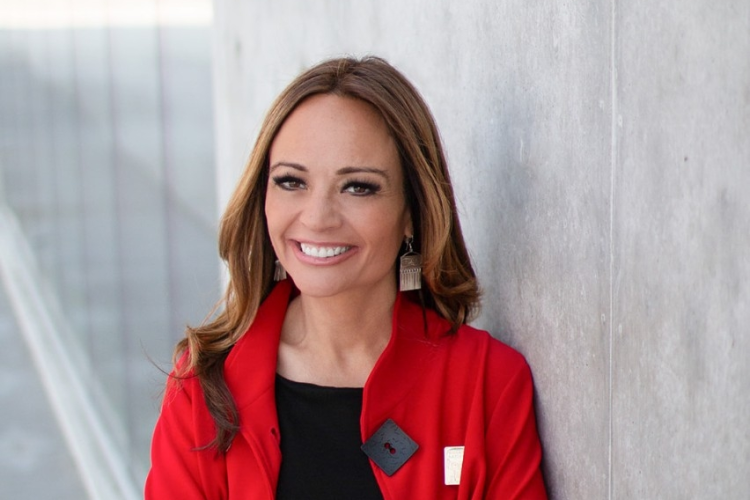NESCO has named Simon Fraser University's Amy Parent (Sigidimnak Nox̱s Ts'aawit) joint chair to advance Indigenous rights, knowledge systems and self-determination across the globe.
Hosted at SFU, the UNESCO Chair in Transforming Indigenous Knowledge Research Governance and Rematriation will allow Parent, of the Nisg̱a'a Nation, to uplift Indigenous communities in Canada, India and beyond.

Parent will collaborate with co-chair Sonajharia Minz of the Oraon Tribal Peoples in New Delhi, India in the role.
"I'm really interested in this area of Indigenous knowledge research governance. It's important for us to protect and also pass on our knowledge to future generations," says Parent, associate professor in the Faculty of Education and Canada Research Chair (Tier 2), Indigenous Governance and Education. "As part of my CRC, I've taken on responsibilities supporting Indigenous research governance at provincial and national levels. The UNESCO Chair offers a way to carry this work forward globally, in collaboration with international rightsholder and partners who share these commitments."
"I see this UNESCO Chair as a catalyzing opportunity to help hold the door open, to a new diplomatic channel for Indigenous rights holders to engage international institutions and governance systems in support of our self-determination, while fostering a shared research space for collective learning, relationship-building, and inspiration with each other.
A UNESCO Chair is an academic position established at a university or research institution in partnership with UNESCO to promote international collaboration, knowledge exchange, and capacity-building in areas aligned with UNESCO's priorities such as education, cultural heritage, sustainability, and human rights.
Indigenous knowledge research governance (IKRG) refers to the self-determined, Indigenous-led processes, policies, and structures that guide and oversee research involving Indigenous Peoples, including rights, knowledges, languages, and lands. IKRG represents a transformative approach that is not only deeply rooted in Indigenous principles of respect, reciprocity, and responsibility towards Mother Earth and all living beings, but also calls for the inclusion of gender sensitive approaches to challenge gender violence, oppression, and research colonialism.
"It is still far too uncommon to see Indigenous women leading international initiatives like this," says Parent. "Dr. Sonajharia Minz and I carry this joint appointment not only with deep honour, but with a profound sense of responsibility to our Nations, our Ancestors, and the generations to come. We are committed to bringing forward the strength of our Nations and the integrity of our knowledge systems into spaces and places where they have long been excluded.
"We are also taking our next step with rematriation, and this announcement is about more than just a title it's about inviting others to dream with us, and to know that yes, we can continue walking together to undertake this vision. We want Indigenous matriarchs, Knowledge Keepers, youth, rightsholders, and communities to know that this Chair is for all of us."
Minz adds: "Time is running out we are on the brink of losing Indigenous languages around the world, and language is more than a mere communication tool. Indigenous languages are a repository of culture, knowledge, and knowledge systems. They are awaiting urgent attention for revitalization, which means that we are all endowed with the responsibility to preserve these worldviews for our future generations."
Parent is also co-chair of the Indigenous Research Leadership Circle with the Tri-Council Agency and the inaugural associate director for the SFU Cassidy Centre for Educational Justice.
In 2023, she received the B.C. Historical Foundation Certificate of Merit with the N'isjoohl rematriation delegation team, which recognized their collective work in bringing their family's memorial pole back to its rightful place in the Nisga'a Nation after being stolen for 94 years.
In 2024, she was named the Confederation of University Faculty Associations of British Columbia's distinguished academic of the year.
UNESCO, the United Nations Educational, Scientific and Cultural Organization, is a specialized agency dedicated to strengthening shared humanity through the promotion of education, science, culture, and communication.













